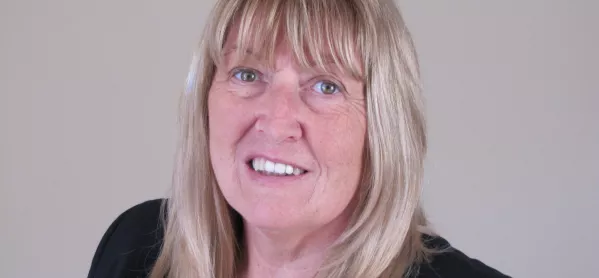Opinion: ‘Adult education is at a cliff edge - and unintended policy consequences could decimate it’

Adult education is an area to which I am personally committed, and believe that for many participants it is their lifeline to society and a better life. Without an adult education service, our country’s productivity and prosperity would be severely diminished and, if we didn’t have it, we would be inventing it. I have been doing my new role with Holex for five weeks and I have really enjoyed re-engaging with a wonderful and exciting part of our education world. It’s full of heritage, history and a sense of worth, while at the same time it is adaptive, progressive and excited about technology.
Holex is the sector membership body for community learning and skills providers, the independent third sector, “former external institutions” and “specialist designated institutions”. It was established to develop these providers’ capacity to provide high quality, cost-effective adult learning opportunities within a publicly and individually funded environment, and to promote the role of member organisations in extending and widening participation in FE, especially for adults who have not previously benefited from education and training.
All Holex members share a joint mission to provide skills and learning that gives adults a second chance and supports their employment prospects and well-being, which in turn improves productivity and creates the circumstances for economic success. That is why I am excited and energised by the thought of working with them. They take quality seriously and continue to top the Ofsted FE and skills table for institutions rated good and outstanding. Many adult education services work in partnership and manage complex relationships with other services such as probation, Job Centre Plus, social care, colleges and universities. They do this because they want the best overall package of support for their students; state funding coupled with robust fee policies allows them to work with these other services in a way that is both value for money and effective.
Going forward, my greatest concern is the next spending review, where decisions may be taken without understanding the consequences. We have seen this in the last few months. The government’s desire to increase funding in certain policy areas has led to several decisions being made which taken separately seemed fine, but together, the impact on many providers was to take 24 per cent from the adult budget on top of the more visible 2010 spending review cuts. The next set of decisions around adult education must be transparent and fully debated, and must not be the unintended consequences of other policy decisions.
It is now recognised by many economists that for our country to meet its full potential it needs to improve productivity. Therefore, going forward, there is an argument for increased investment in adult education. Second-chance education is about putting right what went wrong in schools; it is about acquiring the skills the nation needs, it is about confidence and personal well-being, which in turn leads to more fulfilled employees and citizens who are less reliant on state support and leads to the bonus of improved productivity and a more competitive and successful economy.
Adult education services (whether delivered through local authorities or colleges) are at a cliff edge and there is a risk that the unintended consequences of other policy decisions could decimate them, leaving a large hole in the fabric of our society with no means of filling it. Without these services many people will feel isolated; there will be no easy means of quickly reallocating resource into areas of need, such as where there has been large scale redundancy and the need to support people back into work, or providing part of the solution when there have been civil unrest and breakdowns in society.
My role on behalf of Holex members will be to act as an advocate, generate summaries and analysis of current government initiatives, and share this information with the network. This will include responses to formal consultations, regular updates and alerting members to changes in funding and data. Several services are at the vanguard on new ways of delivering locally. For example, through working in partnership and/or re-forming as new corporate structures, such as mutuals or trusts. Sharing good practice and looking at how best we can contribute to localism and the devolution agenda will be a key work stream. For example, should adult community learning providers be in or out of the new area reviews? This fast changing policy and funding landscape will be the background for my future work with Holex members. It is a big challenge, but I cannot think of a better group of people to be working with.
Register with Tes and you can read two free articles every month plus you'll have access to our range of award-winning newsletters.
Keep reading with our special offer!
You’ve reached your limit of free articles this month.
- Unlimited access to all Tes magazine content
- Save your favourite articles and gift them to your colleagues
- Exclusive subscriber-only stories
- Over 200,000 archived articles
- Unlimited access to all Tes magazine content
- Save your favourite articles and gift them to your colleagues
- Exclusive subscriber-only stories
- Over 200,000 archived articles



